|
Has there ever been a more perfect book than From the Mixed-Up Files of Mrs. Basil E. Frankweiler? I don't think so.
0 Comments
Henry David Thoreau, born this day in 1817, was a Renaissance man who just happened to live in 19th century America. He was a poet and philosopher who worked for a time as a down-to-earth surveyor and pencil-maker, a naturalist who reveled in the wild but was absolutely not a cranky hermit, and a tax-resister who wrote the book, literally, on civil disobediance. 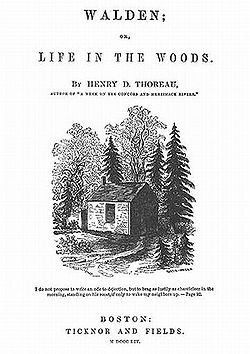 "A truly good book teaches me better than to read it. I must soon lay it down, and commence living on its hint. What I began by reading, I must finish by acting." Thoreau didn't go to Walden Pond just to commune with Nature. He was looking for a quiet place to do some writing and his friend Ralph Waldo Emerson had this nice rustic place on the water. It was perfect for getting a little solitude and being able to tune-out all the hassles of modern life! I can't imagine what he would think about our wired 24-7-365 lifestyle. He might be one of those people running down the street buck-naked, his crazed rants captured on someone's iPhone and posted to YouTube as it happens. As he noted in a chapter of Walden: "I went to the woods because I wished to live deliberately, to front only the essential facts of life, and see if I could not learn what it had to teach, and not, when I came to die, discover that I had not lived." He wasn't a Material Guy and frankly, wasn't pulling in a lot of benjamins at the time so he figured he could reduce his material needs by living simply, rather than support a lifestyle back in Concord that he didn't need or really care about. And if he could do a little communing and meditation, well, so much the better. 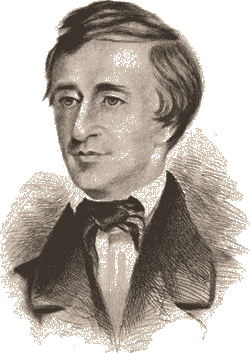 Portrait of Thoreau by Samuel Rowse (1854) In his famous lecture, "Life without Principle" given first in 1854 at Railroad Hall in Providence, Rhode Island and several more times over the course of the next year, Thoreau argued that work should be something we love in order to lead a life worth living, not simply to make a living. Well, that's all very well and good for a Harvard man to spout such idealistic notions, but he seems to have completely forgotten about the poverty-striken masses who were (and still are) struggling to pay the rent and put food on the table for their children. The ideal fulfilled life may indeed be found in pursuing a path that leads us to what we truly love to do, and then work doing that; however, the reality is that many people lack that freedom and must take a job because it comes with a paycheck. But I'm willing to forgive him because he did write a lot of great quotes about books! "Books are the carriers of civilization. Without books, history is silent, literature dumb, science crippled, thought and speculation at a standstill. I think that there is nothing, not even crime, more opposed to poetry, to philosophy, ay, to life itself than this incessant business." 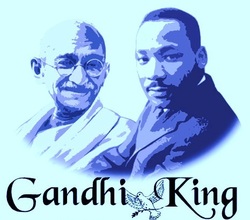 Mohandas Gandhi, Martin Luther King, Jr., Leo Tolstoy, Martin Buber and Supreme Court Justice William O. Douglas all have this in common: an admiration for Thoreau's essay of 1849 "Civil Disobedience," originally published as "Resistence to Civil Government." (It not clear whether he actually ever uttered the words "civil disobedience.")But beyond the big names, the essay was read in the 1940's by the Danish resistance; in the 1950's, it was brandished by those who opposed McCarthyism; in the 1960's, it was influential in the early struggle against South African apartheid; and in the 1970's it was discovered by a new generation of anti-war activists. The essay contains the famous quote often misattributed to Thomas Jefferson: "I heartily accept the motto, — ‘That government is best which governs least.'" Thoreau was actually was referring to an existing saying that was the motto for the journal The United States Magazine and Democratic Review, which was edited by American journalist and editor John Louis O’Sullivan. In 1844, Thoreau’s old pal Emerson also wrote in an essay: “The less government we have, the better.” (What's a little borrowing among friends?) Hmm, I foresee Thoreau's face soon will be glaring out at me from posters held aloft by Tea-Party protesters. Here's what his man-crush Emerson had to say about him: "He was bred to no profession; he never married; he lived alone; he never went to church; he never voted; he refused to pay a tax to the State: he ate no flesh, he drank no wine, he never knew the use of tobacco; and, though a naturalist, he used neither trap nor gun. He chose, wisely, no doubt, for himself, to be the bachelor of thought and Nature. He had no talent for wealth, and knew how to be poor without the least hint of squalor or inelegance. .... Thoreau was sincerity itself ..." You can read more about this fascinating fellow with these biographies, which range from the scholarly to the refreshingly whimsical:
Henry Thoreau: A Life of the Mind - Robert Richardson, Jr. (1988) Henry Thoreau: A Biography - Walter Harding (2011) Henry Thoreau: A Man for All Seasons - Douglas T. Miller (2001) The Thoreau You Don't Know - Robert Sullivan (2009) ...or better yet, romp in exuberant joy now that you are in that special place where the wild things are...
We used to call them mix tapes...and then mix CDs, and then they became playlists on MP3 players, and now we can arrange them on Spotify... whatever... but if you are hanging with your librarian besties and you need some tunes to rock the house, here's another one by Canadian band Moxy Fruvous (from their 1993 album Bargainville). These guys name-drop Gabriel Garcia-Marquez and Michael Ondaatje, come up with a clever rhyme for Mario Puzo and find a way to toss in Doris Lessing as well. Turns out they wrote it in honor of a Toronto authors' festival. (Note to Printers Row Lit Fest: check into a theme song for next year!) @George Michael: if you cover this one and the Julian Smith ditty on your comeback album, I'll guarantee a built-in librarian audience. Maybe write a librarian song of your own and send it in to the Lit Fest committee. And then book a performance at the intimate Chicago Theatre. Unfortunately, these guys are no longer making satirical, politically-aware music together. But they deserve a place in the Librarians' Music Hall of Fame for another of their songs: a jazz-flavored, hip-hop riff on Green Eggs and Ham. One of my favorite children's authors is Beverly Cleary. I adored her books as a child, and plowed through all of the Beezus and Ramona series in my formative years. And I love her as a librarian, pressing her wonderful, crisply-written novels into the hands of my young patrons. If they read one, they want to read them all. She turns 96 today. Here's a lovely piece from last year's New York Times on her ageless appeal.
“Be who you are and say what you feel because those who mind don't matter and those who matter don't mind.” Sublime even when he didn't rhyme. Happy birthday, wherever you are, Theodor Geisel!
Happy birthday, Wilhelm Carl Grimm (1786-1859), the younger of the Grimm brothers, who traveled throughout their native Germany, collecting oral folklore and compiling it into several volumes entitled Children’s and Household Tales, or more colloquially as Grimms’ Fairy Tales. The original tales were rather bloody and gruesome (some might say, grim), but when the brothers discovered that children were reading them, they softened them up a bit (the term “a bit” being relative, for in their version of Cinderella, called “Ashputtel,” the jealous stepsisters cut off their toes in an attempt to force their feet to fit the special shoe). In recent years, there have been a spate of new children’s and young adult books (and a few television shows as well) that have used the Grimm canon and legacy as a springboard for various flights of fancy. 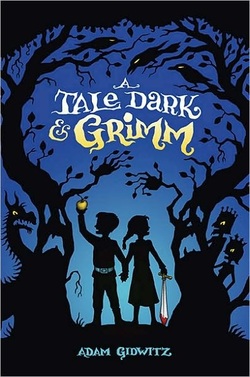 A Tale Dark & Grimm, by Adam Gidwitz, is an amazingly creative take on the tales that twists and turns, terrifies and tickles the fancy. With a Lemony Snicket-like narrator and the plucky Hansel and Gretel as protagonists, the story winds its way through a succession of other, more obscure tales — “The Three Golden Hairs,” “Faithful Johannes,” and “Brother and Sister” to name a few. In this re-imagining, Hansel and Gretel’s parents are not a poor woodcutter and his wife, but the King and Queen of Grimm. As always, parents do unspeakable things to their children. The twist? The brother and sister aren’t the abandoned; it is they who leave-- to find better parents. The magic is that as Hansel and Gretel become heroes by going out on this quest and by saving others, they also come to understand the source of their parents’ weakness’ and failings. High level? Yes -- this isn’t R.L. Stine’s cotton candy horror. But at the same time, “A Tale Dark & Grimm” is truly, laugh-out-loud funny, in the way of The Series of Unfortunate Events. How can you miss with an opening line like “Once upon a time, fairy tales were awesome.” 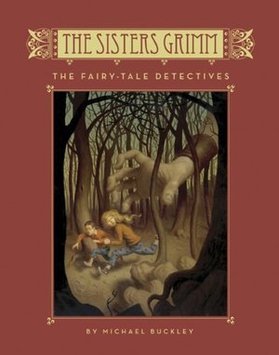 Michael Buckley brought out the first of The Sisters Grimm series in 2005, The Fairytale Detectives, and has been riding the fantasy wave ever since, with six additional novels spinning the tales of Sabrina and Daphne Grimm, sisters and the remaining descendants of the original Grimm Brothers. The premise here is that the fairytales were actually criminal case files, and all the characters are actually the residents (they prefer to be called “Everafters”) of a town in upstate New York called Ferryport Landing. Each book in the series presents a mystery or two for the girls to solve and they are intrepid sleuths who are bound and determined to get to the bottom of the most puzzling enigma: what happened to their parents? (Yes, another set of orphans; well, semi-orphans, they discover they have a long-lost grandma in the first book.) 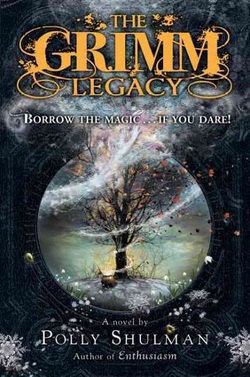 The Grimm Legacy by Polly Shulman takes the premise that the magical objects in fairytales are real-- and that they actually have magical properties. Eight grader Elizabeth gets a job as a page at the New York Circulating Material Repository, which is like a library for objects, all types of objects: the obscure and the most-common, those of historic importance and those with contemporary ties. And then there are those magical objects, the secret ones, tucked away in the basement. That’s where she encounters the Grimm Collection, a room of magical items straight from the Grimm Brother's fairy tales. And that’s where the mystery starts: the magic mirrors, golden slippers, seven-league boots and other items are starting to disappear. Someone is replacing them with ordinary, nonmagical substitutes. And before she knows it, she and her fellow pages - perfect Anjali, hunky Marc, and snarky Aaron - are suddenly pulled into a semi-kooky, semi-dangerous adventure. I wish you much Grimm reading...enjoy! And remember, you can always go back to the originals... there's a reason they are inspiring so many re-imaginings...they are truly timeless tales. Chris Raschka on his 2012 Caldecott Award for the picture book A Ball for Daisy. The illustrations are absolutely wonderful, complementing a heart-warming story about a small dog dealing with the loss of a special toy. It's a tale that any child-- and any adult who remembers what it was like to be a child-- will appreciate. Jack Gantos on his 2012 Newbery Award for his novel Dead End in Norvelt. Jack Gantos, the eponymous hero of this story, set in 1962, lives in the town of Norvelt, PA, a planned community created during the Greate Depression and named for its biggest supporter, Eleanor Roosevelt. Grounded by his parents for misbehavior, Jack comes under the supervision of the local librarian, who gives him the task of typing obituaries of the town's residents. Well, it's not as dull as it sounds for soon he's having adventures involving Eleanor R., molten wax, strange promises, Hells Angels, a homemade airplane, voices from the past, and even a possible murder. Kadir Nelson on his 2012 Coretta Scott King Award for his picture book Heart and Soul: The Story of America and African-Americans. This book expressively maps the story of the black experience in America; it's a story of injustice and hope, of racism and courage, or brutality and faith.
You can't talk about the Harlem Renaissance without talking about Zora Neale Hurston. And would these African-American authors have found their voices without her to blaze the trail: Ralph Ellison, Toni Morrison and Alice Walker.
The fog comes
on little cat feet. It sits looking over ... (from "Fog") Hog Butcher for the World, Stormy, husky, brawling, City of the Big Shoulders... (from "Chicago") Pile the bodies high... Shovel them under and let me work-- I am the grass; I cover all... (from "Grass") If I should pass the tomb of Jonah I would stop there and sit for awhile; Because I was swallowed one time deep in the dark And came out alive after all. (from "Losers") |
AuthorTo find out more about me, click on the Not Your Average Jo tab. Archives
February 2024
Categories
All
|
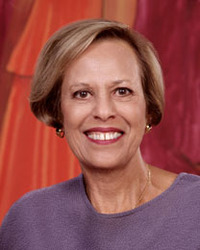
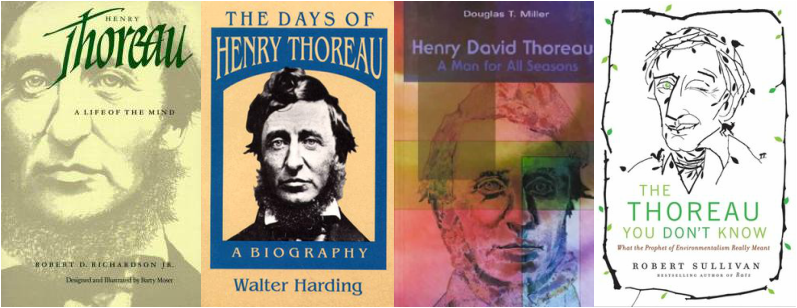
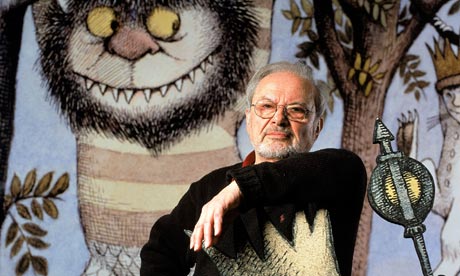
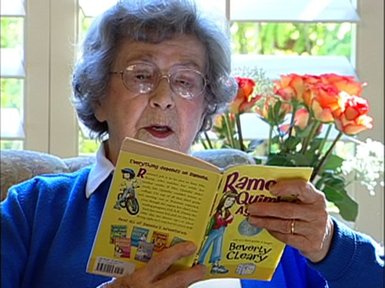
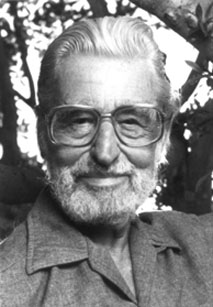
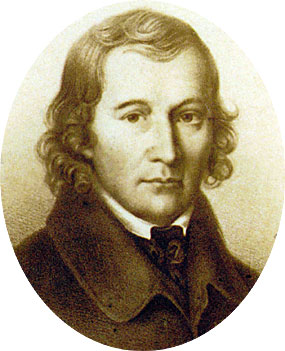

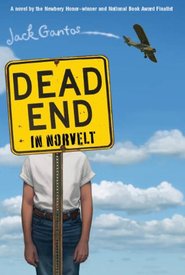
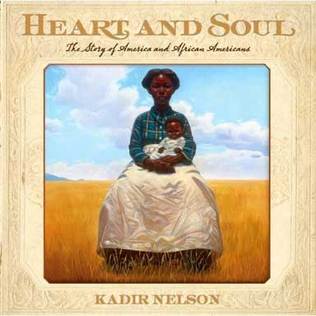
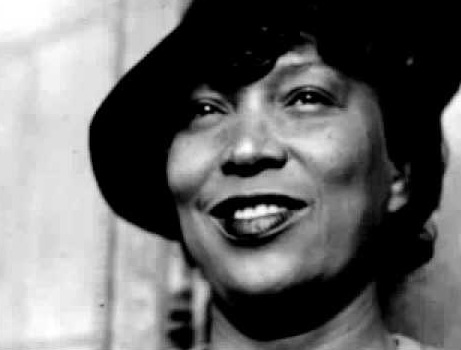
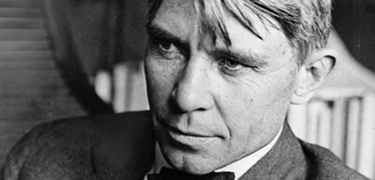
 RSS Feed
RSS Feed